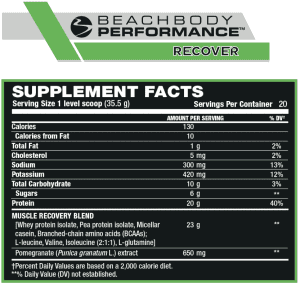It’s time we offer up some knowledge on how protein plays a role in your overall health and wellness, not to mention fitness regimen, and dispell some myths about protein consumption. There are thousands of people everywhere consuming protein shakes for breakfast thinking it’s precisely what their body needs (thank you, modern advertising), yet they truly have no idea. It’s become the cool thing to do to tote around a blender bottle like you’re the healthiest guy or gal in the neighborhood, but what does protein supplementation REALLY mean? Is it good for you? Is it supporting your goals? And, is it the right one? Here, we explain what we know in the world of fitness nutrition.
Stereotypically speaking, folks assume that in order to bulk up in muscle and/or tone up, they need to supplement with protein. Bodybuilders do it and look great, so why shouldn’t we? The truth is, if you’re looking to slim down and pack on some muscle, it’s a good idea to focus on protein. Any protein you consume, (via whole foods or dietary supplements), are broken down into amino acids. Amino acids play several key roles in the body: they act as building material for your tissues, as a fuel source for your energy, and even assist your immune system.
Amino Acids
Some amino acids can be produced by the body, but 9 of them cannot. These are known as “essential amino acids” because you have to consume them via your daily diet. If your goal is to gain muscle, you must consume those essential amino acids. How do you do that? By consuming animal protein (beef, chicken, tuna, for example) or by consuming protein powder.
The truth is, there are too many protein powders on the market to count. But the one basic, elementary thing to know is this: you have two overall types to choose from, plant-based or animal-based protein. While we could go through the scientific explanation of the pros and cons of each, we can summarize it to say that some bodies operate best on animal protein (whey, casein) while others operate best on plant protein (pea, brown rice).
So what’s with all the hype about supplementing protein in the diet? How much protein do we actually NEED? It’s less than you think, assuming you’re someone NOT looking to bulk up your muscle mass.
RDA Recommendations
Per beachbody.com, in the United States, “the recommended daily allowance (RDA) for protein is .8 kilograms per kg of bodyweight (.36 grams per pound). For a 150-pound person, that comes out to 54 grams of protein per day. Such an amount may be fine for sedentary people trying to maintain their current bodyweights, but if you work out, you’ll need more protein to optimize your results — regardless of your age or gender, or whether you’re trying to lose fat or gain muscle.”
What if you’re wanting to build muscle?
If your goal is to build muscle, your daily protein intake should be .7 to 1.4 grams per pound of lean (fat free) body mass per day. Many scales will give you both your total weight (also known as body mass, or TBM) and your body fat (BF) percentage. To calculate your lean body mass, multiply your TBM by your BF percentage, and then subtract that number from your TBM. If you want to keep things simple (albeit slightly less exact), you can also just consume .6 to 1.2 grams of protein per pound of bodyweight per day.
In addition, you’ll need to consume enough total calories to promote muscle growth, as well as enough carbohydrates to help decrease the breakdown of protein for energy so that more of it can be used for muscle growth.
Can you consume protein for fat loss?
We’re glad you asked.
“First, protein can help curb hunger thanks to its satiating quality. Second, the body expends more energy (calories) digesting protein than it does digesting carbohydrates or fat. Finally, eating enough protein can help prevent muscle breakdown during periods of caloric restriction when losing fat, not necessarily weight, is the goal.”
For fat loss, your daily protein intake should be 1.0 to 2.2 grams of protein per kilogram of bodyweight (or .45 to 1.00 grams per pound). If you have a lot of fat to lose, base your protein intake on your goal bodyweight to avoid overeating.
To recap, here are the recommended ranges of protein to consume each day depending on your goal. We’ll use a 150-pound person as an example.
- If you’re sedentary, consume .36 g/pound (54 grams of protein)
- If you’re looking to build muscle, consume: .7 to 1.4 g/pound of lean body mass or .6 to 1.2 g/pound of your total body mass (the latter is less exact) (105-210 grams lean body mass or 90-180 grams total body mass)
- If you’re looking to lose fat, consume .45 to 1.0 g/pound (67-150 grams)
Shakeology For Post Workout
We could go into detail about protein consumption timing, but for the average American looking to lose weight, build muscle, and tone up, we want to first make sure you’re consuming the right amount of protein for your body and your goals, and that you’re consuming it in the highest quality possible: Shakeology. Click here to read more about how Shakeology could be the perfect addition to your diet, or reach out to see how it might work for you.
Consider yourself a bodybuilder or someone who has their protein game on point? That’s awesome! We recommend considering adding our Beachbody Performance Recover to your protein powder (or to Shakeology) as your post-workout protein treat. Here’s the label for stats you need to know:

Cheers to your health!
Yours in Health & Fitness,
Jenny L. Swisher, Owner/Founder of Body Electric
CPT/FNS (NASM)
